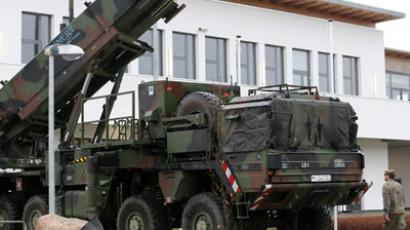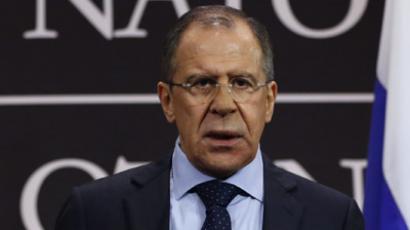Britain to press EU partners to amend Syria arms embargo
Britain seeks to blunt an EU arms embargo against Damascus in order to supply Syria's opposition coalition with non-lethal equipment. Critics of the move, however, have expressed concern that the equipment could fall into other hands.
The UK Foreign Office says Britain will seek an amendment to the embargo next week in a bid to support opponents Syrian President Bashar Assad. EU foreign ministers are expected to discuss the issue in Brussels on Monday. Last week. top EU diplomats agreed to decrease from one year to three months the renewal period for sanctions against Damascus. The moved was seen as a gesture of support for the Syrian rebels.London said it seeks to ship non-lethal military gear and training to Syria to aid the rebel forces. Currently, body armor and night vision goggles fall under the arms embargo; the new amendment would permit the shipment of those and similar supplies.UK Minister of State for Europe David Lidington said on Tuesday in a written statement to parliament that, “Having successfully amended the EU arms embargo (and sanctions package) by setting a three-month renewal period, we will make fresh arguments in support of amending the arms embargo ahead of the March 2013 deadline in a way that offers sufficient flexibility to increase practical support to the Syrian opposition.”An estimated 40,000 people have been killed in the Syrian conflict since it began in February 2011.What really bothers London is that the final recipients may not be the ones the UK has in mind.Even the Syrian rebels themselves have been voicing concerns that a large number of foreign fighters battling the Assad regime are actually radical Islamists with links to Al Qaeda. The West has publicly backed the National Coalition of Syrian Revolutionary and Opposition Forces, a new political opposition group unveiled in Qatar last month. In addition to unifying the Syrian opposition, the coalition was also formed to curb extremism in their ranks.Throughout the conflict, the Syrian opposition has functioned as a loose network of groups, occasionally antagonistic to each other. “The danger in Syria is there is no single leader of the opposition, there are at least 20,” political analyst and author Martin McCauley told RT. “Therefore, if Bashar Assad leaves power, Syria then falls apart as those 20 may fight one another for power.”On December 7, Syrian rebels held a meeting in Turkey – attended by representatives of the US, UK and French secret services – in which 30-member unified opposition coalition was created. The coalition is reportedly dominated by Islamists with ties to the Muslim Brotherhood and Wahhabism, an extreme movement within Salafi Islam. Moderate Syrian opposition members, including renegade former officers of the Syrian Army, are largely unrepresented.Free Syrian Army spokesperson Fahd al-Masri has denounced the new Syrian coalition as controlled by Islamists and foreign powers.“In the end of the day it is going to be the Syrians who are going to decide, not Britain, France and the US,” McCauley said. “The trouble for Britain is they cannot identify the eventual winners – which militia should you support, what would be the interests of that militia when they take power.”“Britain wants to play a role in Syria after the Assad regime falls because there is a lot of business to be done there so they would like to be involved,”McCauley told RT. "Britain wants to back the winning side. They would provide increasingly more offensive weapons.”














